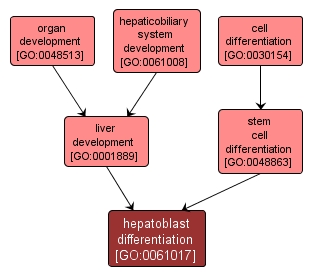| Desc: |
The process whereby a relatively unspecialized cell acquires specialized features of a hepatoblast. A hepatoblast is a cell that retains the ability to divide and proliferate throughout life to provide progenitor cells that can differentiate into hepatocytes and cholangiocytes. |














